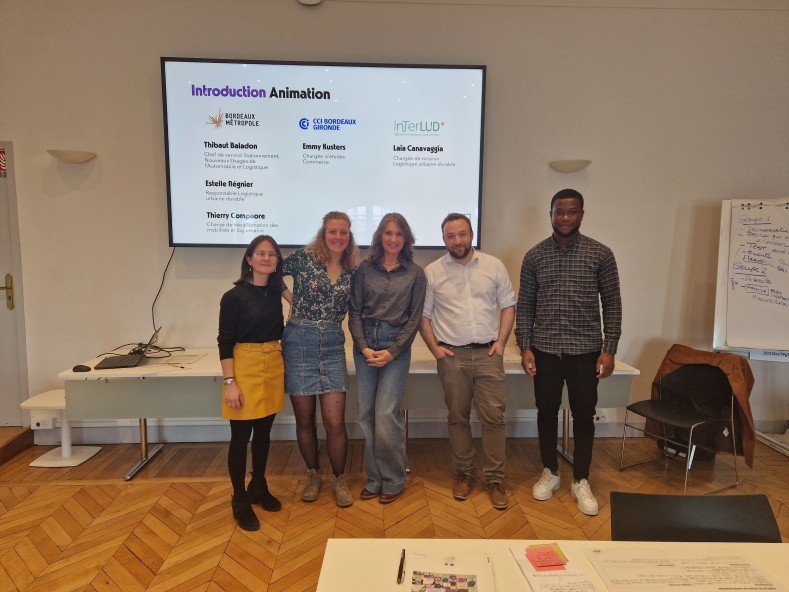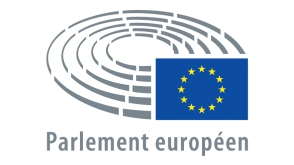
The number of territories supported by the InTerLUD+ program currently stands at 58. While 10 new territorial and concerted urban logistics charters were signed in 2024, this foresees the launch of several actions in 2025.
In this article, we will focus on three territories already taking action, each with an evolving charter that has not yet been signed. Bordeaux Métropole, the Valenciennes Métropole Urban Community, and the Le Havre Seine Métropole Urban Community are the three case studies we will examine to highlight the favorable contexts in which their proactive initiatives preceded the signing of their Sustainable Urban Logistics (LUD) charter by public and economic partners.
Le Havre Seine Métropole
The pre-final version of the LUD charter for Le Havre Seine Métropole was subject to an online consultation with the territory’s economic partners in the spring of 2024. On this occasion, they expressed 24 desired contributions to actions, distributed throughout the charter. These positions were then presented to elected officials, who validated the charter and its action plan. Currently, the agglomeration’s communication department is finalizing the charter, during which the local authority has already initiated 4 of its 10 planned actions:
- Define a delivery areas master plan (SDAL) informed by feedback from InTerLUD+ and developed by the consulting firm Interface Transport.
- Support the development of cycle logistics in the territory which includes the deployment of the CEE ColisActiv’ program in the region.
- Develop out-of-home delivery points in under-equipped areas co-financed by InTerLUD+ for an outsourced study conducted by a specialized consulting firm.
- Create a site dedicated to local food flows – Local Interest Market
Valenciennes Métropole
Valenciennes Métropole has been actively implementing its future LUD charter between the end of the InTerLUD program (2020-2023) and the operational continuation with InTerLUD+ (2023-2026). Two experimental actions are currently deployed in this territory, resulting from continuous and collaborative project group efforts:
- The Val’Mouv project, led by Ben Ali Transport in partnership with the Valenciennes Bicycle House, is an urban logistics hub aimed at promoting cycle logistics.
- The experiment with the ‘CurbX’ application, a digital tool developed by Urban Radar, aligns with the community’s goal of gaining precise knowledge about the delivery area network and their respective use by transport stakeholders.
Bordeaux Métropole
Bordeaux Métropole has long developed expertise in urban logistics and adopted an Urban Logistics Roadmap (FdR) following consultations conducted under InTerLUD. Although not yet signed, this document serves as an LUD charter under InTerLUD+ and was deliberated in the metropolitan council in May 2023.
The Bordeaux Métropole FdR thus becomes a strong framework document, benefiting from political validation while remaining an evolving and developing charter. Indeed, consultation workshops, technical committees (COTECH), and steering committees (COPILs) continue to address territorial issues: urban logistics data, land needs, feedback from urban logistics spaces, micro-land investments for cycle logistics, and the evolution of pedestrian zone regulations in Bordeaux’s hypercenter. These ongoing discussions gained momentum with the launch of the Urban Logistics Club (CLU) in January 2024, a partnership between the Metropolis and the Bordeaux Gironde Chamber of Commerce and Industry.
At the same time, the FdR is being implemented across its three other axes, with 11 actions currently underway. These actions focus on key themes such as the development of urban river freight transport—for example, through the ongoing feasibility study related to the EDDGAR project, the support for cycle logistics, including the active search for underutilized spaces for cycle logistics players, the link between urban planning and logistics land use, and the reception and circulation conditions for heavy goods vehicles, both in terms of space and regulations.
To conclude, each territory implements actions toward sustainable urban logistics based on its experience and ongoing consultations with local stakeholders. While these actions precede the official signing of their charters, they are always politically validated and subject to continuous consultation. Le Havre’s example demonstrates proactive action without waiting for the charter’s signature, made possible through dedicated technical teams and the involvement of consulting firms at the end of their contracts. Valenciennes Métropole’s case highlights the ability of a region to take independent yet collaborative action during a transition period between InTerLUD and InTerLUD+. The strong local partnerships and continuous engagement with economic actors ensured this proactive approach. Finally, Bordeaux Métropole’s case underscores the importance of expertise, internal coordination, and structured stakeholder dialogue, enabling the ambitious and collaborative implementation of its Urban Logistics Roadmap.
The InTerLUD+ program offers territories engaged in validated or signed sustainable urban logistics charters financial and methodological support, fostering further advancements in sustainable urban logistics initiatives.
More Information

